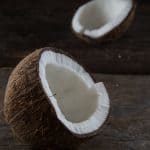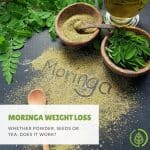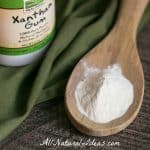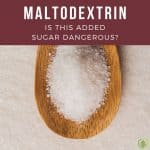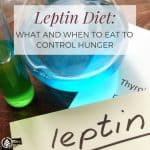Vitamin B9 is best known for being an important nutrient for pregnancy. But there’s far more to it than just being beneficial for baby. Learn more about Vitamin B9 foods and what the best form of the supplement is….

Like many other nutrition topics, there’s conflicting information about vitamin B9. On one hand, it’s critical for many basic biological functions. But on the other hand, getting too much of the nutrient may cause health problems.
Let’s dive in and discover the basics of this important nutrient….
What is vitamin B9?
Here’s a quick one-question nutrition pop-quiz: how many B-complex vitamins are there?
Surely, the answer must be 12, right? After all, if there’s a vitamin B12, there must be 12 B vitamins.
Well, the official answer is that there are 8 B-complex nutrients. Similar to Pluto losing its status as a planet, vitamins B4, B8, B10 and B11 have been relegated to the dwarf planet equivalent of the vitamin world.
Like all B-vitamins, 9 is water soluble. Water soluble vitamins aren’t stored in your body fat. You need this critical nutrient from food or from a supplement; your body doesn’t make it on its own.
The “B’s” of the vitamin world play several important roles in the body. Most of these physiological processes pertain to converting food into energy.
Vitamin B9 is known as “the baby vitamin.” That’s because it’s critical for preventing birth defects, especially of the spinal cord. For this reason, it’s perhaps the most important substance in prenatal vitamins.
However, high doses of it may cause certain cancers.
So how do you know if you’re getting just the right amount? And what’s the best sources of it? These questions will be answered shortly. But first, let’s learn more about it….
Vitamin B9 Benefits
In its natural form, the nutrient is known as “folate”. Only a few foods are high in folate.
If you don’t eat foods that have folates, you may want to consider taking a supplement. In supplement form, folate is known as folic acid.
Whether it’s folate or folic acid, both natural and synthetic vitamin B9 play very important roles in the body, including:
- Growth and repair of nervous system, smooth muscles and red blood cells
- Converts carbohydrates into usable energy (glucose)
- Metabolizes fats and proteins
- Regulates brain function
- Produces genetic material (RNA and DNA)
- Controls iron function
- Aids in healthy cell division
- Improves memory (when combined with other B-vitamins)
Because it aids in cell and tissue growth, folate is especially critical for developing fetuses. It remains a vital nutrient throughout infancy and adolescence.
If you are planning on getting pregnant, you may want to start taking folic acid sooner than later.
That’s because it may prevent birth defects and developmental disorders, such as:
- An incompletely-formed spinal cord (spina bifida)
- Anencephaly (missing parts of the skull and/or brain
- Leukemia
- Autism Spectrum Disorders (ASD)
- Language delay
As for the last two disorders above, clinical trials from Norway reveal strong support for taking a supplement….
Expecting mothers in the study who took 400 mcg of folic acid 4 weeks before to 8 weeks after pregnancy reduced their risk of having a child with ASD by 39%. The risk of language delay was reduced even more with folic acid supplementation: 45%.
A similar study from Israel revealed even a higher percentage ASD reduction risk. Interestingly, food in Israel is not fortified with vitamin B9. Even in the USA, however, expectant mothers should take a high quality supplement (learn which ones ConsumerLab recommends below).

Vitamin B9 and Heart Disease
There’s one more major thing that vitamin B9 function plays a huge role in….
It breaks down and maintains normal levels of homocysteine. What’s the big deal about this? High levels of this amino acid have been associated with heart disease.
In addition, it’s also been linked to hardening of the arteries, blood clots and heart attacks.
But, don’t think you can eat a high-carb diet and prevent heart disease simply by taking a folic acid supplement. Doing that will likely not reduce the risk of heart disease.
Deficiency
Because many processed foods are fortified with folic acid, vitamin B9 deficiency is rare. However, it does occur. If you drink lots of alcohol, you’re at greater risk for being deficient in this nutrient.
And in addition to heart disease, if you don’t consume enough foods with folate or get in supplement form, you may be at greater risk for autoimmune disease and cancer.
Most people, however, may have the opposite problem of deficiency. Because of the over-consumption of processed foods, many people may have too much of it.
But doesn’t your body just get rid of excess B-vitamins? Yes. But if you have too much of it circulating in your system, it could be a reason why homocysteine levels become too high.
There is another factor in the link between deficiency and heart disease. About one-third of all Americans have a mutation of a certain gene, “MTHFR”. This mutation is a double-whammy. First of all, the mutation prevents homocysteine from breaking down (being metabolized).
And second, the mutation prevents an enzyme from breaking down folate or folic acid into its active form (methylfolate).
Approximately 11% of Americans have two MTHFR mutations. These people have a 16% greater risk of developing heart disease.
Best Folic Acid Supplement
Most Americans don’t need vitamin B9 supplements—with the exception of pregnant mothers. That’s because most Americans eat processed grains. Folate deficiency is rare because as of 1998, grains were fortified with folic acid.
However, if you’re the rare person who doesn’t eat grains of other foods high in it, you may want to take one.
If you are going to take a supplement, do so in the form of methylfolate as opposed to folic acid. Folic acid is the most common synthetic form. But it’s a lower quality than methyl.
In fact, methyl may even better than natural sources, says ConsumerLab, a subscription-based independent research organization.
If you discover that you have the MTHFR mutation, ConsumerLab suggests taking either of two synthetic versions of folate: Metafolin or Quatrefolic. These two forms are easier to absorb than common synthetic folic acid.
ConsumerLab says that if you take a vitamin B9 supplement, here’s the dose you need:
- 150 mcg for kids ages 1-3
- 200 mcg for kids ages 4-8
- 300 mcg for kids ages 9-13
- 400 mcg for ages 14 and up
- 600 mcg for pregnant women
- 500 mcg for breastfeeding moms
- 400 mcg for women who wish to become pregnant
ConsumerLab also suggests that in addition to taking the supplement, you should also get vitamin B9 from food (folate).
Best Sources of Vitamin B9 from Food
For an easy reference, the USDA’s National Nutrient Database has a list of the richest sources of folate.
To summarize the list, good news if you’re a vegetarian: beans and lentils are best. Green leafy veggies such as spinach as well as oranges are also high in folate. Other healthy foods that are high in folate vitamin B9 are asparagus, turnips, beets, peas, and brussel sprouts.
There’s also a decent amount of it in fruits, nuts, seafood, eggs, dairy products, and meat.
But try to get most of your folate from beans, legumes and dark leafy greens.

Best Vitamin B9 Supplements
According to ConsumerLab, the most cost-effective brands (and ones that have been approved by the research organization) are:
- Spring Valley
- Finest Nutrition (Walgreens brand)
- Rite Aid
If you’re deficient, ConsumerLab recommends the following three brands:
- 365 (Whole Foods)
- Douglas Laboratories Methyl Folate (L-5-MTHF)
- Wonder Laboratories
As mentioned above, methylfolate is considered superior to common synthetic folic acid. The most cost-effective form of this form is sold by the brand, Jarrow Formulas.
Too Much of A Good Thing
Unless you’re expecting to be pregnant or pregnant, if you eat plenty of veggies, you probably don’t need to supplement with folic acid (or methylfolate). Getting too much of this nutrient increases the risk of developing heart disease or a stroke, and possibly cancer.
There’s conflicting evidence from research studies. But to be on the safe side, limit your intake of folic acid to 800 mcg a day.
And chances are, you’re already getting more than you realize. As ConsumerLab points out, the amount of folic acid on a supplement or fortified food label is actually 170% more absorbable than folate (food-based B9). So what this means is that if a box of cereal contains 400 mcg folic acid, to your body, it’s really 680 mcg.
Conclusion
With the exception of preventing birth defects, taking a B9 dietary supplement is most likely unnecessary. Because of the high consumption of grains in this country, folic acid intake is adequate in most people.
But what if you’re grain-free, bean- and legume-free? If so, then eat more leafy greens.
The bottom line is you probably don’t have to worry about getting enough of this nutrient. Not if you’re eating lots of leafy green veggies.
However, next time you go to the doctor for a check-up, ask to be tested for the MTHFR mutation. If you find out you have the mutation, then you can consider taking one of the supplements ConsumerLab recommends.
And if you’re a vegan or vegetarian, you should probably be more worried about vitamin B12 deficiency.
Do you supplement with vitamin B9? Leave a comment….
References:
B Supplement Vitamin Review (subscription required to ConsumerLab.com)
Folic acid vitamin B9: Friend or foe?

